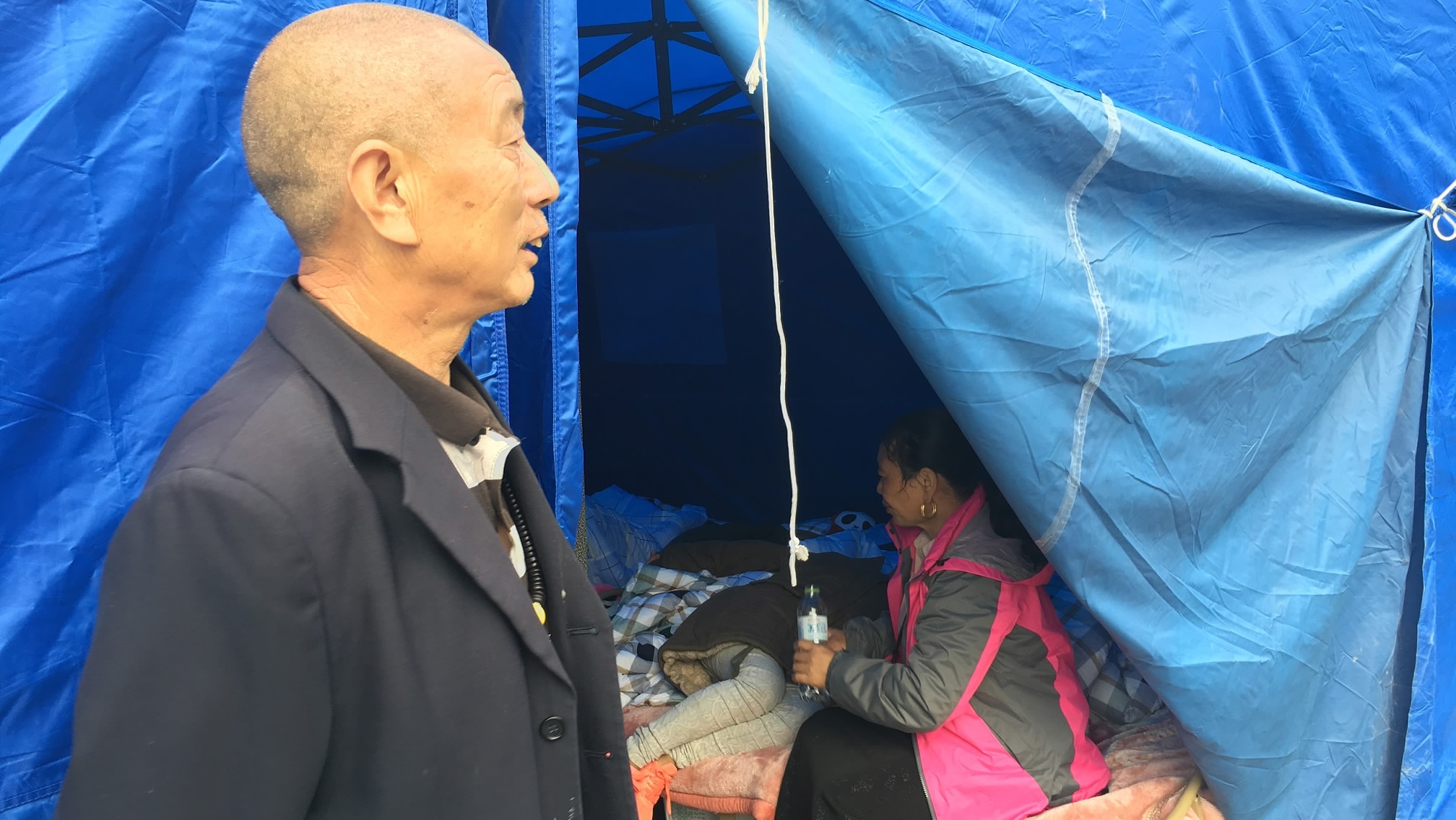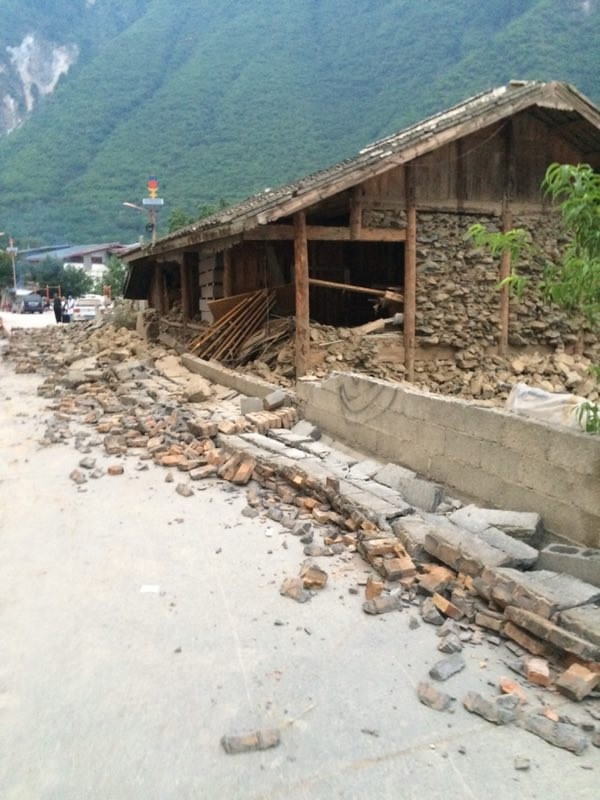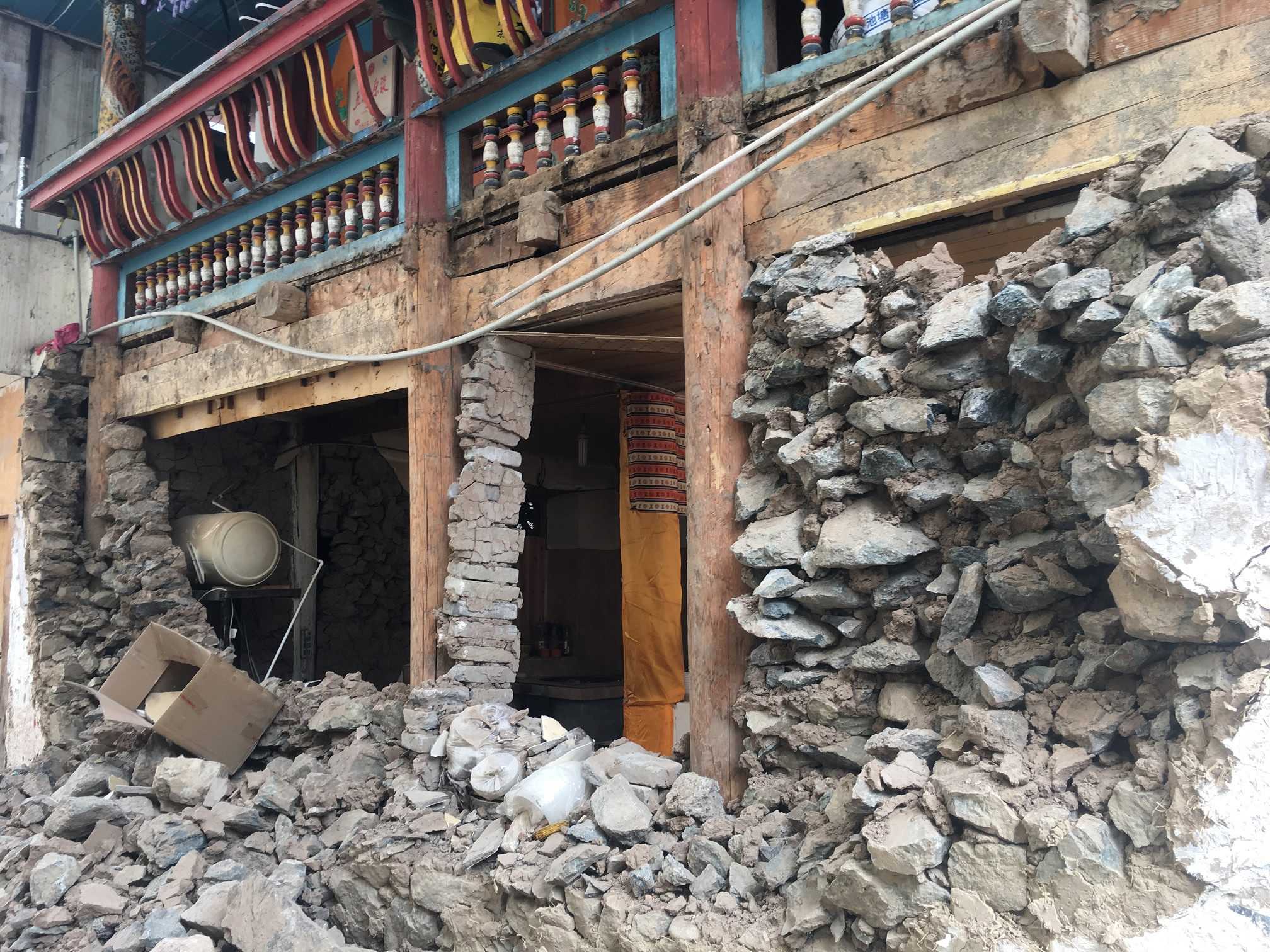
China
18:24, 11-Aug-2017
Villagers in SW China contemplate life after earthquake
By CGTN's Wu Guoxiu & Hu Ying

Zhangzha, near the epicenter of Tuesday's deadly earthquake in southwest China, was one of the villages that suffered the most damage.
All the villagers in this Tibetan locality were moved out of their homes right after the quake. Now, over 200 people are staying in tents that were set up in a parking lot. Nobody knows how long they will need to stay there.
Mu Yi, 68, and seven of his family members ran out of their house when the disaster struck and were unharmed. But Mu’s biggest worry now is not safety, but how he and his family will pick up their lives after the catastrophe.
For three years, Mu has run a small hotel. It took him about a million yuan (150,000 US dollars) to start this business: half the money to build the hotel came from relatives, while the other half came from bank loan.

A damaged house in Zhangzha. /Photo by Hu Ying
A damaged house in Zhangzha. /Photo by Hu Ying
Mu hoped the booming tourism industry in Jiuzhaigou would help him pay back his loans quickly, but now the earthquake has ruined his plans, his house and his business.
"How do I pay back loans and how will we continue our lives in the future without any income? Those are my biggest concerns now," Mu Yi told CGTN.
And he is not alone: most villagers here have the same worries as Mu.
Residents in Zhangzha village used to have their own farmland. But in the early 2000s, the local government implemented a policy to turn farmland back into forest land. So their lives have since depended heavily on the fast developing tourism industry in Jiuzhaigou.

A damaged building in Zhangzha. /Photo by Hu Ying
A damaged building in Zhangzha. /Photo by Hu Ying
Without land, most local residents like Mu started small businesses like selling street food, bags, and accessories to make a living. Having saved some money, some built up small hotels and restaurants.
Though competition was fierce, they could still earn between 10,000 and 20,000 yuan (1,500 to 3,000 US dollars) on average per month, especially in the peak tourist season. That was enough for locals to maintain a decent lifestyle. This week however, disaster struck just as the peak business season had started.
"The stress on us is as huge as mountains, because we don't know when the tourism industry will be restored,” the villagers say. Still, they can see a silver lining: “Luckily we are still alive and we still have hope."

SITEMAP
Copyright © 2018 CGTN. Beijing ICP prepared NO.16065310-3
Copyright © 2018 CGTN. Beijing ICP prepared NO.16065310-3